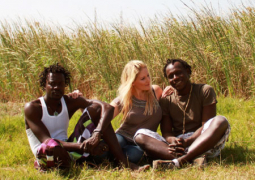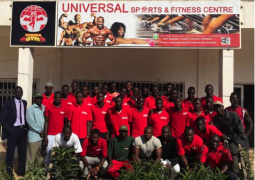The training, which brought participants from the six agricultural regions, was organised by the department of agriculture under the FAO-funded Technical Cooperation Programme Project.
Joko Kutubo E. Sanyang, national project manager, said to prepare for training in farmer field schools (FFS), effort must be made to know the farmers perception about farming and the adoption and implementation of good agricultural practices for increase agricultural production and improvement of livelihoods.
This would create the opportunity to identify and characterize farmers’ production constraints which would determine the critical entry points into the FFS, he said.
He said that during the course of the project implementation, information on project activities would be prepared for publication in the FAO-Gambia newsletter and in the local newspapers, radios and television.
“This action will create visibility for the project outputs, in particular, emerging success stories of the impact of the project activities on the lives of women cowpea farmers will be prepared and published,” Mr Sanyang further stated.
In addition, and to support after-project farmer training activities,information brochures and training materials on cowpea production, post-harvest management, marketing and utilization would be published for wide-scale distribution to cowpea farmers and field extension agents in The Gambia, he said.
The Project Management Committee established would remain functional to provide policy guidance and general oversight for project implementation, he added.
He revealed that a monitoring and evaluation protocol would be designed for continuous assessment of progress of project implementation to ensure the project objectives are being fully achieved.
Technical backstopping for the project would be provided to ensure women cowpea farmers are adopting and applying the IPPM methods for ecologically sound and sustainable cowpea production leading to higher income generation and improved family nutrition, health and well-being, he said.
He added that at the end of the IPPM training of farmers in the FFS, an assessment of project activities would be conducted in the implementing farmer groups.
“The primary objective of the assessments is to determine the impact of improved integrated production and pest management practices on women cowpea production systems, as well as improvements in farmer’s incomes from marketing of cowpea,” he went on.
Dr Kujejatou Manneh, deputising for the FAO country representative, expressed FAO’s satisfaction to the Government of The Gambia for its firm agricultural development in the country.
She noted that it was worth mentioning that the FAO had provided support to the country through a number of projects related to plant protection and agricultural production.
She added that the FAO through these projects successfully introduced integrated pest management IPPM training for extension agents and farmers on farmer field schools for food crop and horticultural production in The Gambia.
According to her, the FAO has been promoting farmer field schools since the end of the 1980s, adding that the TCP cowpea project was envisaged to build capacities of women cowpea farmers to increase cowpea production through addressing the major ecological, biological and socio-economic factors which frustrate efforts at increasing and sustainable cowpea production by women farmers in The Gambia.
“It is expected that the training will enhance the capacity of extension workers trainers with the required knowledge and skills on the concept of farmers’ field school and agronomic practices for improved cowpea production and utilization,” she said.
She thanked the Government of The Gambia through the Ministry of Agriculture for the excellent relationship which FAO enjoys with its government partners and took the opportunity to reaffirm FAO’s commitment to the collaboration and corporation with the Government of The Gambia.



